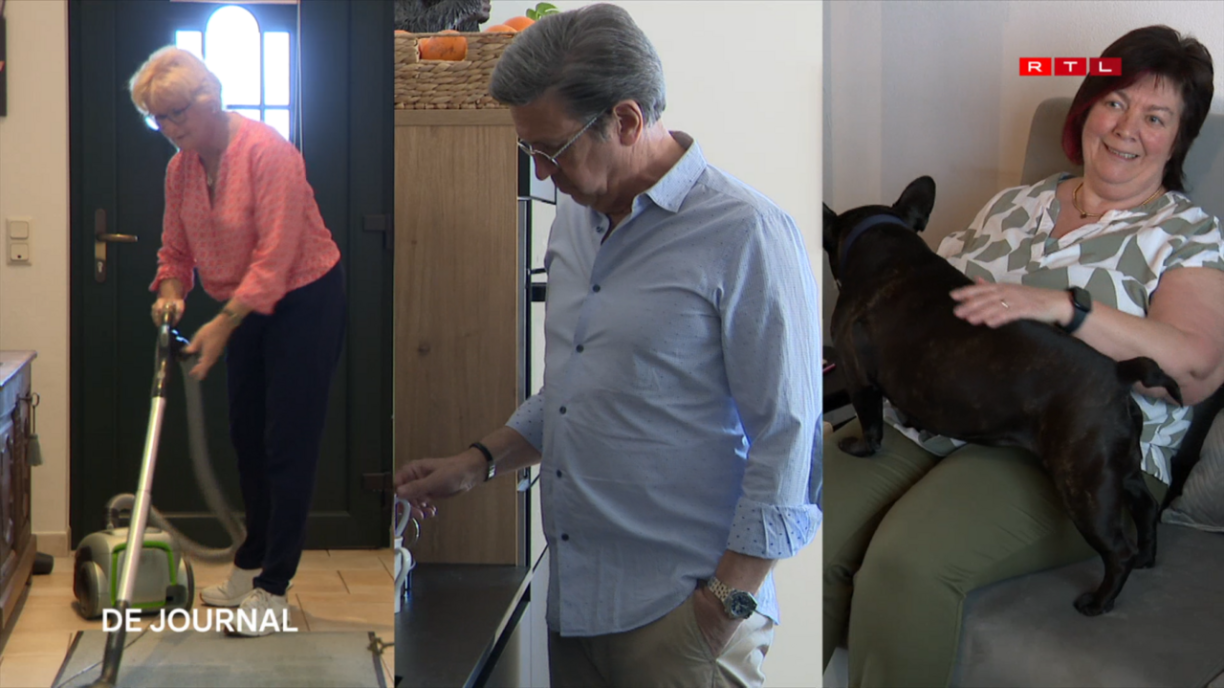
Luxembourg’s pension fund is approaching its limit, with new projections from the General Inspectorate of Social Security indicating that the reserve could be depleted within the next twenty years.
A debate has ensued over the methods of making the pension system sustainable. However, what kind of life can one have with current pensions? What worries about the future do those concerned face?
Reaching the winter of life can be a rewarding experience. People are living longer and healthier lives than ever before, largely thanks to the financial support provided by pensions. However, significant changes are expected in the coming decades.
RTL met with Lucien Maes, Monique Heinisch, and Bernadette Scheuren at their respective homes – all three retired.
Lucien Maes shares his perspective, noting that while things were on the rise in Luxembourg and other countries, that upward trend has now come to an end. Monique Heinisch echoes this sentiment, expressing concern about the future well-being of her two grandchildren. Bernadette Scheuren adds that, while she is grateful for her own retirement, she believes younger generations may not have the opportunity to retire at 60.
Monique, a former teacher, currently receives a widower’s pension, and reminisces about earlier times when households were much bigger, with kids and grandparents usually living under the same roof. She compares her father’s pension with her current one and can only conclude that times are better now. In the 1970s, pensions typically ranged between 200€ and 300€ per month per household – difficult times for many.
Bernadette worked in the care sector, having retired a year ago. She shares anecdotes about her father’s discontent with the pension he received in comparison to her brothers’ earnings, expressing dissatisfaction with his pension after a lifetime of work. However, she also acknowledges that quality of life during retirement diverges greatly in Luxembourg, stressing that since she did not work for 18 years, as she had to take care of her parents and her child, she has to rely on her husband in combination with the small pension she receives.
Lucien retired at 60, having worked in the insurance sector. He acknowledges that although he’s not rich, his pension allows him to have many hobbies, go on vacation, and even buy a car. However, he emphasises that being free of debt or mortgage at his age facilitates all of these possibilities.
And yet, a life without debts is slowly becoming a mere ideal. Mortgages may now take 30 to 40 years to pay off, leading to an indebted generation well into their retirement. Young people and their parents are increasingly concerned about unaffordable housing, inflation, and uncertainty, with real consequences for future pensions.
Lucien recounts a memory of families that worked in a floor tile factory in Wasserbillig, at a time when mostly men were employed and women stayed at home. With that single wage, most families were able to build a house, according to Lucien. Nowadays, he states, his generation’s children, who are in their 30s, have it much harder. He believes it will become even worse.
The number of pensioners continues to rise in Luxembourg. It is projected that by 2070 – within 45 years – more people will receive pensions from Luxembourg than the number of employees that pay into their pensions, making the system unsustainable. As such, the debate regarding the pension system is currently in overdrive. These three pensioners have their own ideas about how to make the system sustainable.
Bernadette, for example, proposes avoiding the “scattergun approach”, that is, non-selectively financing pensions, suggesting instead that people with smaller pensions should be the focus. Monique shares a similar idea, indicating that everyone should be able to live contently with the pensions they receive.
Lucien has more concrete proposals, suggesting that pensions should remain at a relatively high level by increasing the contributions of social partners.
Indeed, a solution is highly sought after, but we can only wait.